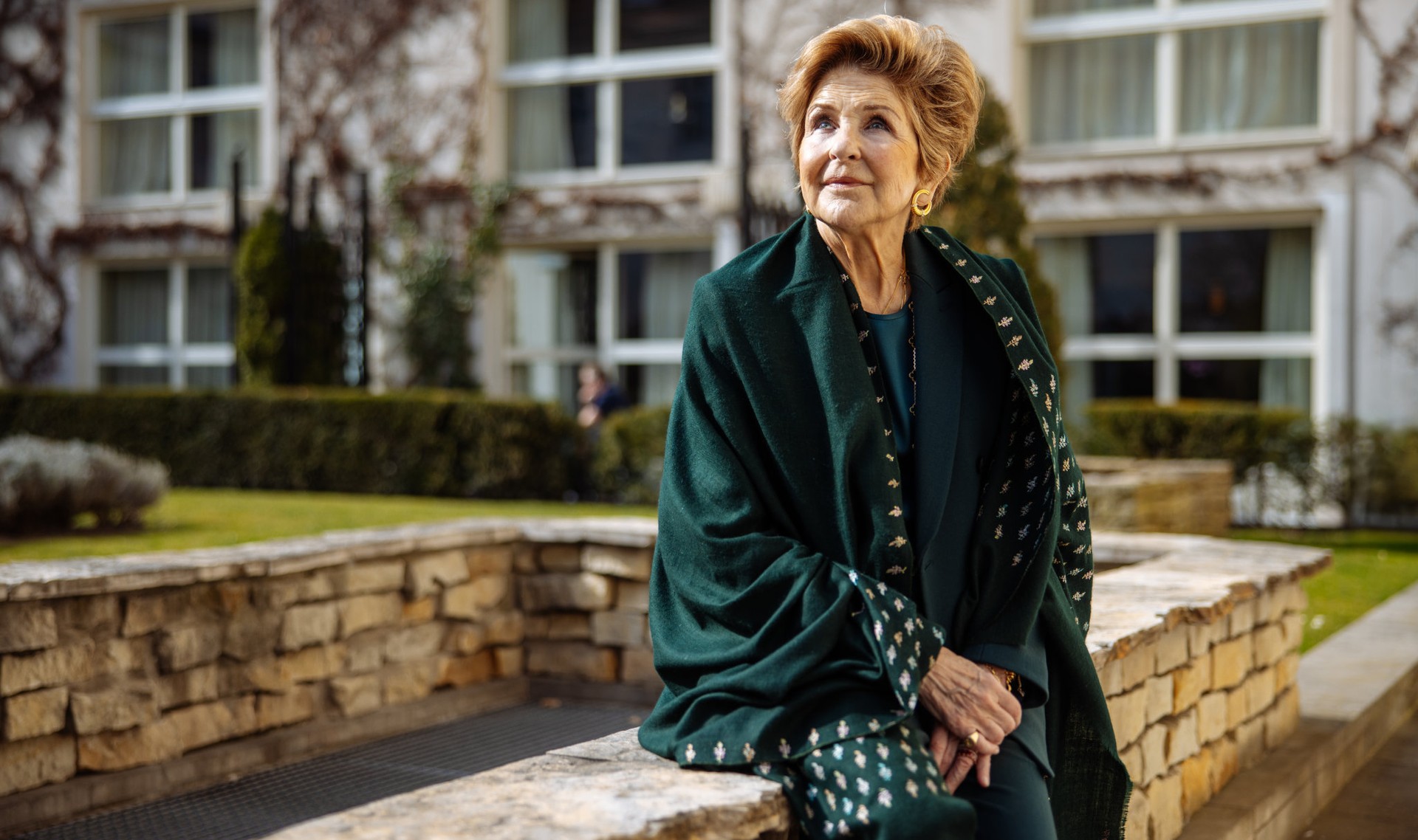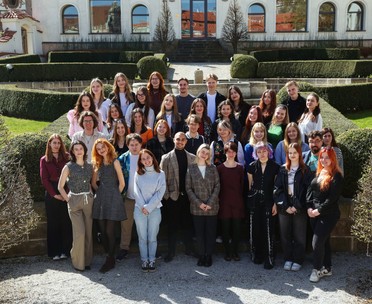

Insights
Equality is a Process — Quotas in South Africa Have Led to the Opposite
March 28, 2025
She was born in Greece and started a family in London with her first husband. But in 1989, a meeting with Frederik Willem de Klerk, the future president of South Africa, changed her life. He fought against racial segregation in the country and, among other things, secured the release of Nelson Mandela — the renowned activist who had been sentenced to life imprisonment for attempting a coup. Elita de Klerk stood by the politician until his death in 2021, upon which she took over his work.
Author: Kristýna Matějková, Hospodářské noviny (HN), a Czech business daily
Photos: Lukáš Bíba
Ms. de Klerk, 73, now heads the FW de Klerk Foundation. She is also patron of the Global Leadership Foundation, an organization created by her husband that brings together former presidents, prime ministers, and other leaders from around the world. In addition, she spends her time on charity work, with a focus on helping women and disadvantaged children. This month, Ms. de Klerk accepted an invitation from Michaela Bakala and visited Prague as one of the main guests at the gala dinner where Hospodářské noviny presented the 2024 TOP Women of the Czech Republic awards, an event under Ms. Bakala’s patronage.
You married President de Klerk in 1998, at a time when he was very much in the public eye and South Africa was going through an important transition. What was it like to be by his side during that time?
Your husband at that moment is a legend and a man everyone admires. You are not. So you have to find a way to keep very close to him while not being in front of him. And you have to realize that the honors are not for you. A friend of mine once told me that in our relationship, F.W. was a vase with water and I was the bouquet. A decoration, but one that can’t survive without water. They are connected.
It wasn't exactly easy. F.W. changed the face of South Africa as a whole and many people opposed him. He had a lot of enemies, especially whites, who called him a traitor. The blacks liked him. I always felt like I was part of his security detail. I would look around and study the body language of the people around us.
What brought you and your husband together?
You know, I suffer from depression. So when I don’t feel fulfilled, I look outside myself for something to make me feel whole. That’s why I've always wanted to find purpose in life and a place in the sun. I only feel happy when I'm around people. I met F.W. and his wife in 1989. And I saw in him another fighter, someone who was trying to make the world better. I was attracted to that, and I felt that I should be by his side. Unfortunately, we both had spouses at the time. But that’s a long story.
In the context of social change in South Africa, what role did women play at the time?
I'll answer your question by telling you a story. In 1995, I visited an informal settlement in South Africa where poor people lived. There was a young girl there in bad shape. And on her wall at home, she had hung a picture of Brad Pitt. The same one that hung on the wall of my daughter's room in London. I myself didn't know who Brad Pitt was at the time. But I was shocked by how similar those two separate worlds could be.
When I spoke to ladies there, who were, let's say, from similar backgrounds as mine, they weren’t aware of what was going on in society, and they were very isolated within their own gardens and homes. And the black women, on the other hand, were in activist mode, they were members of the African National Congress (the South African socialist party under which Mandela later successfully ran for president – ed.) and they were fighting for the greater good. But I think women everywhere share the same basic problems.
South Africa is among the countries that have adopted quotas, mandating a certain percentage of women in parliament and among political party candidates. How has that worked out?
I feel like there are women absolutely everywhere. Even if they don't have the skills for the job. There, gender equality has gone the other way. The pendulum has swung to the extreme, but I believe that, as with everything, it will eventually stop somewhere in the middle.
So is gender equality an ongoing process?
That’s what I think.
What advice do you have for young women who want to succeed and stay strong in a male-dominated environment?
First and foremost, they need to believe in themselves. They have to believe that they are loved, that they are worthy, and that they can achieve anything. But at the same time, they must not consider their colleagues rivals. I'm sorry, sometimes I speak very abstractly, even my husband used to tell me that. But once when Mandela came to lunch with us, he told me that it was good, because great things are born of abstract ideas.
I saw an interview with Michelle Obama yesterday and she talked about how we need to take much better care of ourselves within society. In life, in business, everywhere, we need to look after each other more and then we won’t feel lonely. Because we all often feel that way. Mental health is a big issue. And if we could just acknowledge that, we’d help ourselves so much. We all have the same problems, fears, and we all want to feel loved. But we're afraid of rejection.
Why are we afraid of this?
Because it takes courage. If I came and told you I had mental health issues, how would I know I can trust you? You must allow yourself to be vulnerable, which isn’t easy. But vulnerability is our main strength.
You're involved in many projects and foundations. How do you find time for yourself?
There’s not as much of it since my husband died. Imagine, for instance, that between 2008 and 2018 alone, he traveled to the USA 35 times just to give a speech. That's a lot. During that time, I would wake up in the morning and not know which country I was in.
My husband was the one with power, I was the follower. When he passed away, I realized I had to take over leadership of the foundation. The first two years were extremely challenging. Now, as we begin the fourth year, we have — among other things — a new director. But I still feel a sense of responsibility and wonder how my husband would have wanted it. How he would have wanted South Africa to develop and what direction he would have wanted for the other issues we work on.
As someone who suffers from depression, how do you look after your mental health?
Most importantly, you have to be open to your surroundings. And you must recognize when it's getting worse and you’re losing your way. As I get older, I realize that we carry our childhood traumas with us throughout our entire lives.
How can we deal with them?
I think we can get them under control. Or at least learn to recognize why we feel the way we do. One of the most common traumas is abandonment. But it's not like our parents do it on purpose. As a child, you need to be hugged, but you don't always get this. Once you realize you have this trauma, you can take care of the child within you in adulthood.
What works for you?
It takes a lot of work. I have to constantly be aware of where I am emotionally. I can't get too physically exhausted because that also drags me down. And I have to be close to God. This brings me so close to my husband that I feel like he's right beside me.


